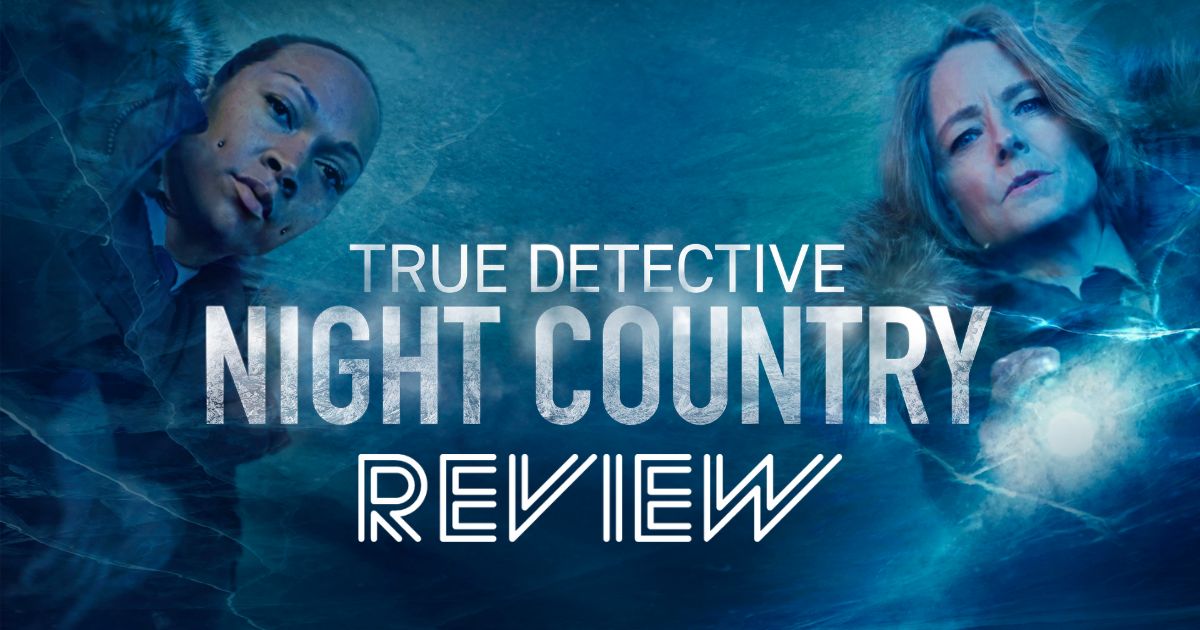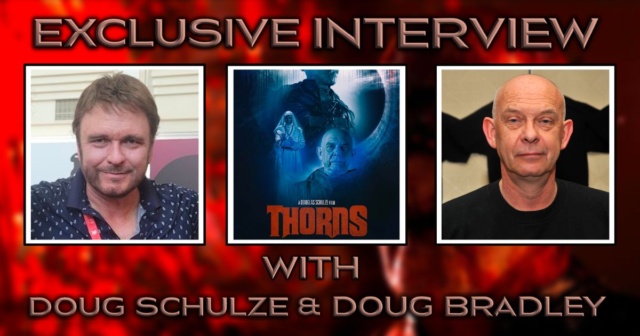‘True Detective: Night Country’ Review: First Half of Season Features Intrigue and Atmosphere

As of this writing, the fourth iteration of the divisive HBO anthology series True Detective is halfway through its six-episode run. For the first time, the show comes with a subtitle, True Detective: Night Country. It also features a complete shake up of the creative forces behind the iconic series. Gone is showrunner Nic Pizzolatto, the driving force behind True Detective for its first three seasons, as well as Cary Joji Fukunaga, who departed after serving as the director for the whole of the first season.
After a rapturous reaction to season one, which starred Matthew McConaughey and Woody Harrelson as world-weary Louisiana State Police detectives, critics and audiences alike derided season two of the show as laughably bad. That season featured Colin Farrell, Rachel McAdams, and Vince Vaughn enmeshed in the seedy side of California politics. True Detective season 3 returned to form, following Mahershala Ali as an Arkansas detective obsessed with a cold case involving two missing siblings.
But how does Night Country hold up against previous seasons of the series so far? Read on to find out my thoughts on the first half of the season.
[Warning: Spoilers for True Detective: Night Country below]
The filmmaker behind True Detective: Night Country
Night Country is the brain child of Mexican filmmaker Issa López. It’s an almost direct inversion of season one, even as the unfolding labyrinthine plot has begun to reveal deep connections to that very season. López, who HBO selected as showrunner and writer for the season when Pizzolatto departed for greener pastures, went as far as to call her season a “dark mirror” version of the first.
Per López: “Where True Detective is male, and it’s sweaty, Night Country is cold, and it’s dark, and it’s female.”
López achieved breakout status with her 2017 fantasy horror film Tigers Are Not Afraid (original Spanish title, Vuelven) a blend of fantastical magical realism and gritty social drama. The movie is compared favorably (though not by this critic) to the work of Guillermo del Toro. It follows a young girl who receives supernatural help when she is swept up in the violence perpetrated by the Mexican drug cartel that rules her town.
For the first three episodes of Night Country, López digs deep into societal ills and the marginalized people who suffer the most as a result of them, namely indigenous women. As with the previous seasons of the show, López plays coy with the supernatural elements within Night Country. At least until an effectively staged bit of creepiness in the final seconds of episode three removes all doubt that something beyond our realm is at work in the tiny town of Ennis, Alaska.
The story and standouts of True Detective: Night Country
The two standout elements of Night Country so far – the deeply complex characters that López has created and the actors who bring them to life – work hand-in-hand to produce an utterly compelling and engrossing drama. The great Jodie Foster heads up the ensemble as workaholic police chief Liz Danvers, who is as good at her job as she is being a pain in the ass to anyone working with her.
The season begins at the Tsalal Research Station, 150 miles north of the Artic Circle, near the town of Ennis. Evoking the 2002 horror comic book miniseries (and 2007 film adaptation) 30 Days of Night, the show informs us that the date is December 17, and we are witnessing the last sunset of the year in this frozen part of the world. Night has come, and, as one character observes a few days later in the first episode, after only three days of dark, “it’s already getting weird.”
We see the eight men working at the Tsalal station, whose work involves various climate related research, on what appears to be a typical day for them. The scientists are a tight-knit group who rarely leave the facility and have all their supplies delivered on a weekly basis.
Cut to some time later, and the delivery driver discovers a chaotic scene. The place is abandoned, the Ferris Bueller’s Day Off DVD we saw playing earlier has been on a loop so long that it’s glitching as it plays. A sandwich we saw one of the team members making before things went sideways lies on the counter untouched. There’s also a severed human tongue on the floor.
Within minutes of Chief Liz Danvers showing up, we get a sense that she is exceptional at her job. Upon entering the station, she immediately sets about figuring out how to shut off the DVD, which is blaring the “Twist and Shout” parade sequence from Ferris Bueller. Danvers’s junior officer, Peter Prior (Finn Bennett), explains how each panel on the entertainment console won’t open and that he’s already tried each one.
She taps one in just the right place, and it opens, to Peter’s surprise. After ripping the DVD player out of the wall, Danvers stridently declares that she’s not a Beatles fan. As the mazelike plot of Night Country unfolds, we learn that her reaction to “Twist and Shout” is a result of past trauma; although by the end of episode three, the particulars of this trauma are still a mystery to us.
“Ask the right question”
We see Danvers repeat her investigation mantra multiple times during Night Country, especially when prodding Peter to look deeper at the clues. “Ask the right question,” she says over and over. Danvers is exceptional at her job, but López makes her, as well as the other characters on the show, into a fully formed person, complete with a bounty of flaws.
Leah (Isabella LaBlanc), Liz’s indigenous adopted stepdaughter, whose father, Liz’s husband, died years before, becomes radicalized against the local mining operation, which indigenous residents are protesting because of the harmful environmental impacts it’s causing. (Not to mention the fact that it’s on sacred indigenous land.) Danvers insists that Leah remove the temporary indigenous face markings that show solidarity with the movement.
She’s also dismissive when her coworker, Alaska State Trooper Evangeline Navarro (Kali Reis), insists that when indigenous women are killed, nobody lifts a finger, but as soon as eight white men go missing, the cavalry is suddenly mobilized. López’s show tackles, without ever being preachy, the complaints of the Missing and Murdered Indigenous Women (MMIW) movement, which has been making similar observations, with barely any impact on mainstream media.

Navarro gets involved in the Tsalal case when she hears about the severed tongue. A cold case has haunted her for six years; the indigenous victim, Anne Kowtok, who was an activist in protests against the mine, was found brutally stabbed with her tongue cut out. Navarro is played by indigenous actress and boxer Kali Reis with a raw physicality and fatalistic outlook. We meet the character as she’s arresting a man for beating his wife after she moved out of their house.
Meanwhile, Peter’s father, Hank, played with a simmering menace by the wonderful character actor John Hawkes, chafes at being a senior detective who must answer to Danvers. In no small part, we surmise, because she’s a woman. Hank is a bully who makes every attempt to strong-arm his son into adopting his “blood is thicker than water” worldview when it becomes clear that Peter’s allegiance to Danvers is too strong for Hank’s liking.
Even more intrigue is loaded into the plot when we discover the true relationship between Danvers and her boss, Captain Ted Connelly, who assigned Danvers to her current position. He’s threatening to take away the Tsalal case from her, and to give it to the authorities in Anchorage, who have more resources.
True Detective: Night Country is filled with intrigue and setting that is bone chillingly cold
By the time we get to this point in the season, we know that Danvers will let that happen over her dead body. López delicately weaves all of these myriad plot strands together throughout the first half of the season with a high amount of skill. She also sets a creepy tone with the help of her cinematographer Florian Hoffmeister, who shot 2022’s gorgeous Tár. Hoffmeister makes you feel the bone chilling cold of True Detective: Night Country’s setting.
There’s a development in the third episode of the season that gave me pause. We learn that the Tsalal researchers were trying to sequence the DNA of an ancient microorganism in the hopes that it could unlock the cure to cancer, autoimmune diseases, and a host of other human ailments.
The pause came because the idea, if it becomes a central part of the plot in the last half of the season, struck me as completely silly. Plus, why does this guy, who Danvers just happens to know, and who is a high school geology teacher, know any of this? I’m intrigued to see how López will further intertwine the supernatural element that she committed to at the end of episode three into the last half of the season.
If nothing else, I’m hooked on the drama of the messy human relationships that López is exploring in her take on this watershed HBO mystery series.
True Detective: Night Country is currently streaming on Max. Have you checked out this new season yet? Let us know what you think on social media @mycosmiccircus or The Cosmic Circus Discord.
Mr. and Mrs. Smith Review: Refreshing Reboot With it’s Own Flair
For All Mankind Season 4: Gripping, Grounded, & Award-Worthy Performances
Interview: Director Douglas Schulze and Doug Bradley on New Horror Movie Thorns





